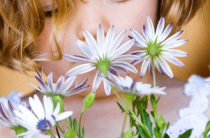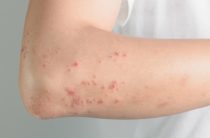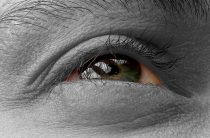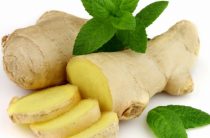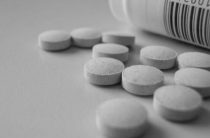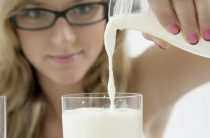A large number of people on the planet suffer from manifestations of allergic reactions. The factors that provoke the disease and its forms can vary greatly. The most common allergens include various foods. Sometimes the reaction is caused by a completely different allergen. For example, many do not even know that there is an allergy to coffee. Unaware of it, people exclude other foods from their diet, continuing to suffer from the manifestations of the disease.
Allergy symptoms may be permanent or appear spontaneously. Of course, for some people, such a reaction will not cause problems, but for coffee lovers, this diagnosis sounds like a sentence. There are no special methods for identifying this diagnosis in medicine today. The most effective way to identify the presence of allergies is the complete rejection of coffee.
Causes
Scientists believe that people are allergic to coffee due to the presence of chlorogenic acid in its composition. Although it must be recognized that the presence of a substance does not cause a reaction in everyone, because the true causes of the disease are:
- Weak immunity;
- Diseases associated with the work of the gastrointestinal tract;
- Problems in the functioning of the organs responsible for filtering substances that enter the human body (kidneys, liver, pancreas).
In some cases, an allergy to coffee develops against the background of excessive consumption of the drink. When consuming it, you need to remember that coffee can harm the human body, being a highly concentrated product. People who have a sick heart and stomach, it is contraindicated. And the abuse of coffee by each person is an additional risk factor.
Coffee allergy symptoms
The symptoms of this allergic reaction are similar to those of other food intolerances. Patients experience:
- Respiratory reactions (cough, sneezing, shortness of breath);
- Skin manifestations (urticaria, red spots on the skin, skin itching);
- Digestive reactions (flatulence, hiccups, diarrhea).
In addition to the main symptoms, some patients show chills, migraine attacks, and palpitations. Some people suffer from a reaction even to the smell of coffee (symptoms are usually from the respiratory system - sneezing), but the drink is not refused anyway. In fact, this manifestation is worth listening to: it is often a sign of the initial stage of an allergy to coffee. If you ignore it, then soon the situation worsens and new symptoms appear.
If a person notices symptoms that are characteristic of a coffee allergy, he should try taking an anti-allergic drug. This is not a cure, but doing so will help identify a reaction. In cases where relief is felt after taking medications, it is worth seeking advice from an allergist.
Features of the flow
Allergy to coffee can occur as an unexpected, spontaneous phenomenon, or it can be a recurring reaction. Exactly how the symptoms manifest and the nature of the allergic reaction often depends on the type of coffee. The product is available in custard and soluble form.
Brewed coffee
It is real brewed coffee that causes severe allergies in most cases. Symptoms of such a reaction are usually a rash, blistering, redness and peeling of the skin. Usually such manifestations are localized on the face (in the mouth and nose). Often they are supplemented by abdominal pain, swelling, diarrhea, shortness of breath. These symptoms usually indicate allergic gastroenteritis.
In more serious cases, the patient's temperature rises sharply, Quincke's edema may develop (the entire face, part of it, or one of the limbs swells badly). Often, after a primary allergy to a drink, the body begins to react to the coffee aroma. Against this background, attacks of nausea, vomiting, sudden dizziness, sneezing, runny nose are possible.
Instant coffee
The principle of the reaction of this product to the human body is slightly different. The cause of allergies in this situation is caffeine, although exceptions are also possible. The fact is that powdered coffee contains a lot of food and chemical impurities that actively retain caffeine in the body. There is more of it in instant drinks than in grains. Regular use of the powdered version causes an overdose of caffeine.
Coffee in the instant product contains about 15%. The rest is flavor additives, food or chemical impurities, flavors. The primary symptomatology, similar to an allergy to coffee beans, is rare in reactions to its soluble variant. Almost always, the disease is manifested by abdominal pain, vomiting, disorders. Quincke's edema is rare, but it is possible.
Diagnostics
Treatment for suspected coffee allergy can only be started after special tests have been carried out. Thanks to the development of medicine, today it is possible to be tested for many specific allergens. After the consultation, the allergist offers the best diagnostic option to his patient. These may be the following methods:
- Skin allergy tests;
- Bioenergetic diagnostics;
- Diagnostic examination of hair;
- Blood tests.
Skin testing involves injecting a small amount of an intolerable substance under the skin. If there are antibodies in the body, then allergy symptoms will definitely appear. If the material for research is hair, then a small number of antibodies are added to them, and then the reaction is observed. To see it, you need a special microscope or computer research. Radionics is considered a somewhat controversial method, so it is resorted to if other diagnostic steps have been ineffective.
Treatment
Whatever the causes of food intolerance, treat the disease as an indigestion with the help of antihistamine spectrum drugs. An allergic person should always have Suprastin on hand. The maximum dose should not exceed 2 mg per kilogram of patient weight per day. Treatment with Suprastin is carried out in accordance with the recommendations of the allergist. If there is no effect, and the patient does not feel better, then the administration of the medication is also prescribed intramuscularly. In the most difficult cases, it is administered intravenously.
Allergy to coffee is an indication for the use of sorbents. The course is 30 days, and the standard dosage is 1 tablet of activated charcoal per kilogram of body weight. It is important to take sorbents two hours before the first meal so that they act as efficiently as possible. This measure is not able to completely get rid of the reaction, but it will partially weaken its manifestations.
There are also some folk methods:
- Tincture of celandine;
- Infusion of the elmous meadowsweet;
- Mummy, diluted in warm water;
- A decoction of a series.
Please note that traditional medicine treatment must be strictly coordinated with the attending physician. In some cases, herbs are contrary to the main treatment course. In addition, such products can also be strong allergens. It is especially dangerous to completely replace medications with herbs. This can cause complications, including Quincke's edema.
Preventive measures
The most effective method against an allergy to coffee is to exclude it from the diet. If caffeine is the cause of the reaction, then allergic manifestations will also occur on chocolate, cocoa, tea, and cola. For those who are not able to completely refuse them, you should always have anti-allergenic products in your pocket and reduce the doses of potential allergens as much as possible.
Occasionally, a cross-allergy to beans occurs with a coffee allergy. It makes sense to limit their consumption. It is also worth moderating the amount of meat in the diet and quit smoking. The fact is that purine in meat and nicotine in tobacco are substances related to caffeine in chemical composition.
Allergy to coffee is rare. If you still fell under the influence of a fragrant allergen, but cannot imagine starting the day without a cup of your favorite drink, try to find an alternative. Invigoration will give a glass of orange juice drunk in the morning or a few minutes of a contrast shower. Do not forget about the complex of morning exercises. These procedures will make you vigorous, give energy and strength.
